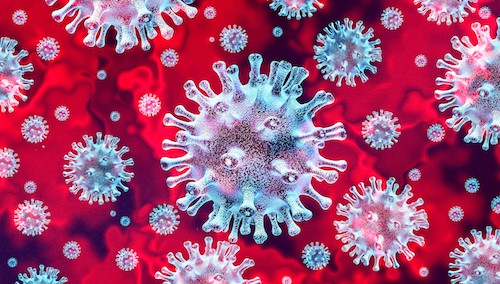
Researchers from the University of Geneva (UNIGE) and the Geneva University Hospital (HUG) have revealed the ‘exceptional capacity’ of Omicron to evade the antibodies generated by all other COVID-19 variants.
Isabella Eckerle, who led this work, is a professor in the Department of Medicine at the UNIGE Faculty of Medicine and head of the HUGUNIGE Centre for Emerging Viral Diseases. The team analysed the antibody neutralisation capacity of 120 people previously infected with one of the different variants, unvaccinated, or vaccinated and infected, and Eckerle explained that this represented “the majority of cases in the community”.
The study found Omicron to be the most effective at evading pre-existing natural immunity and, to a lesser extent, immunity induced by vaccination.
In vaccinated individuals, while the neutralisation capacity is reduced, it remains ‘far superior’ to natural immunity alone, the study found. Researchers suggested that this could explain why Omicron is responsible for a net increase in vaccine break-through infections, but not in hospitalisations.
Researchers also conducted antigenic mapping of the different variants, based on the same model used to determine the antigenic changes of influenza. The method makes it possible to represent the distance between the characteristics of the antigens of the variants concerned – the further away they are, the less effective the antibodies generated during previous infections will be.
Explaining the results, Meriem Bekliz, a postdoctoral researcher in Eckerle’s lab and first author of this study, said: “It turns out that the Omicron serotype is totally different from the others, as was the Zeta variant, which disappeared rapidly.”
Despite the risk of hospitalisation significantly reducing after vaccination, Eckerle emphasised that SARS-CoV-2 retains an “astonishing” ability to mutate, which also appears to be accelerating. “Vigilance is still required, especially as the epidemiological curves have been rising sharply since the appearance of BA.5, the most recent Omicron sub-variant,” adds Eckerle.
The HUG outpatient test centre has offered SARS-CoV-2 testing for the community since the beginning of the pandemic and, as a national reference centre for emerging viral diseases, has the capacity to sequence a large proportion of positive cases to monitor the appearance of new variants.
“Since the beginning of 2020, we have collected samples of the original virus and all its variants that appeared in Switzerland, even the rarest ones such as Gamma or Zeta. This makes it a comprehensive collection of samples from individuals with different infection backgrounds, collected according to an identical protocol,” Eckerle said.




